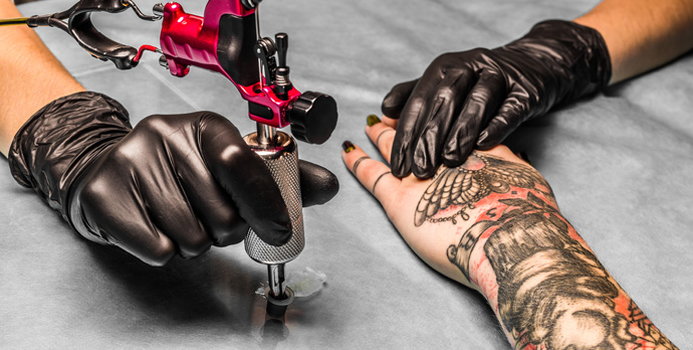Few people think that taking a dip with a new tattoo will kill them. But that's exactly what happened to an unidentified 31-year-old who recently went for a swim in the Gulf of Mexico.
The man had some new ink on his calf. In the water, he contracted Vibrio vulnificus, a type of bacteria found in both raw oysters and seawater. Doctors believe that the bacteria entered his body through the open wound on his calf.
The infection triggered progressive septic shock and cellulitis, an aggressive skin infection. His doctors prescribed a powerful course of antibiotic treatment. Despite their best efforts, the man died around two months after coming into contact with the bacteria.
The tragedy — including the disturbing images which circulated online — came as a warning for people who have ignored the advice of their tattoo artist in the past by getting a tattoo wet before two weeks have passed
But it's important to note that this particular man was also more susceptible to infections. He had chronic liver disease, a long-term health condition that weakens the immune system, much like HIV. People with chronic liver disease are advised to avoid swimming in the ocean if they have an open wound.
Most of us don't think of tattoos as open wounds. But they are, and they take at least a couple weeks to heal. Though the man's health status made him more likely to contract an infection, new tattoos can act as entry points for bacteria among healthy people, too. Once these microbes enter the body, they can spread, causing serious — and in some cases, deadly — infections.
Tattoos aren't generally considered dangerous, provided the parlor is licensed and the tattoo artist follows proper sterilization practices. But until the skin heals fully, they are wounds, and in most cases, they're actually more dangerous than other types of cuts and lesions. That's because tattoos usually contain many different points of entry to the body. When you get a tattoo, a needle makes many tiny puncture marks, sometimes covering a large surface area. All of these small puncture marks can give germs accesses into your system.
And V. vulnificus isn't the only bacteria that can cause an infection. Staph infections can also be deadly. The good news is that you can minimize your risk of an infection by coating a new tattoo with antibiotic ointment and covering it with a bandage for the first 24 hours.
You should also avoid swimming for about two weeks after getting a tattoo — and that includes swimming in oceans, lakes, pools, and hot tubs, which all present infection risks. Following this advice is especially important for people who have health conditions that affect their immune systems — diabetes, for example. There's no point getting a tattoo if you can't show it off.
[Image via Shutterstock]



